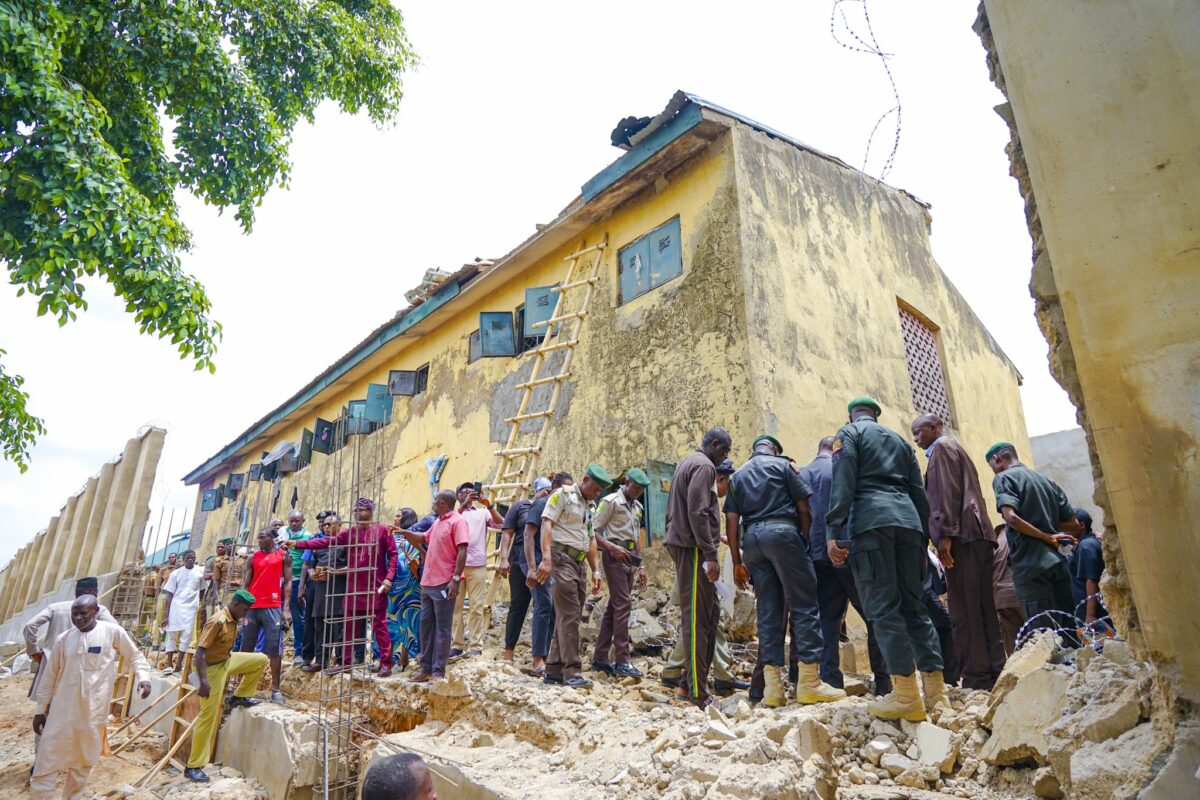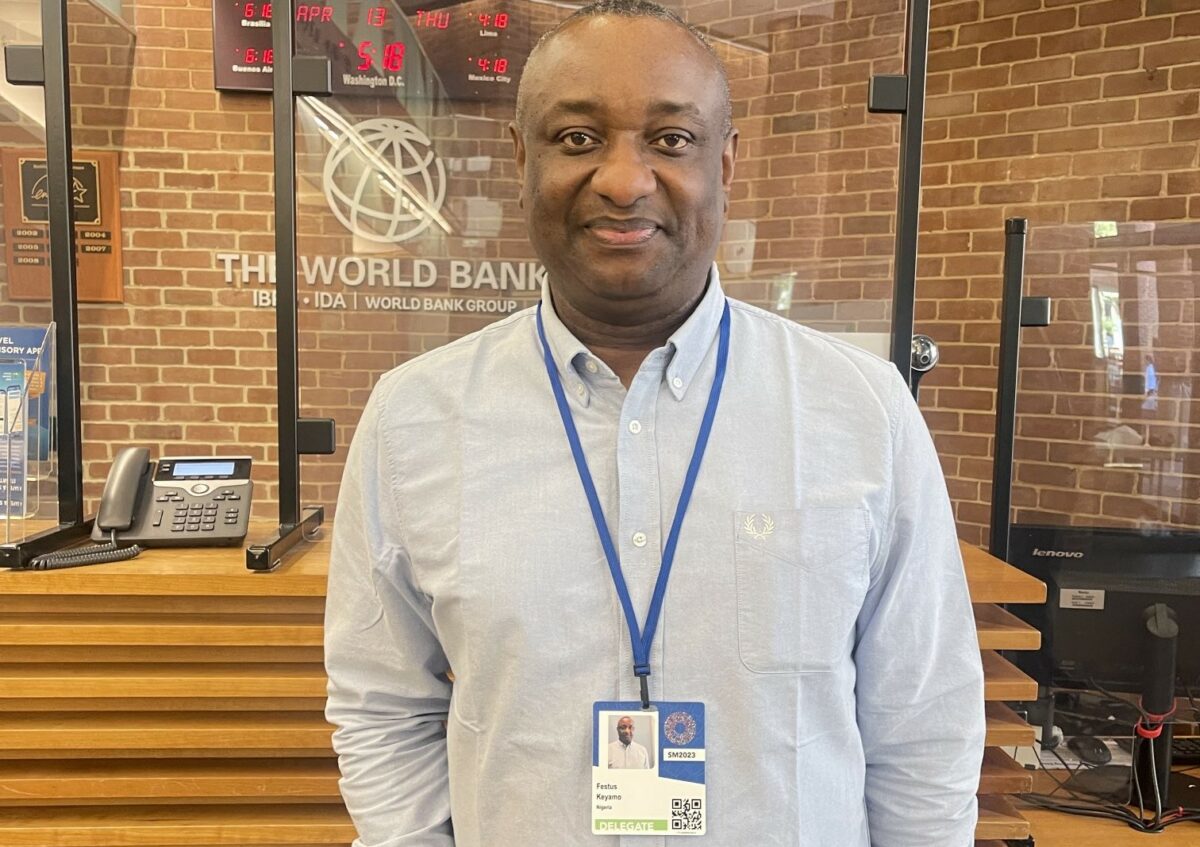It is true that sometimes, the most present threat is often the most overlooked danger. Many Lagos residents are very reluctant to visit banking halls for reasons spanning from transit stress to waiting in that dreaded queue. It is hardly a case of fear or insecurity.
Numerous recent visits to a particular Nigerian bank branch made me feel unsafe in a way I had never felt before. It was what I did that made me realise the threat waiting to culminate in a major bank incident in a Nigerian city. I was with a heavy backpack pumped with a laptop and some appliances when I wanted to quickly halt a transaction in the banking hall, and I found it easy to get into the hall with my backpack without proper checks.
“That bag is heavy, sir. That is why you cannot go inside that way,” the security official at the door had told this reporter.
“I will hold the bag for you as you walk through the doors, and then I will pass it to you.”
It was just as the official said. I walked through the door and he passed the bag to me as soon as the sensor informed the door to admit me into the bank. This official held my bag, felt the weight but failed even to ask to check the contents.
Banks were some of the most vulnerable institutions in Nigeria’s past. Although insecurity has not affected the banks in a city like Lagos recently, the institution has relaxed its preventive measures so much that it endangers customers in quite an insidious manner.
Customers now walk into most banks with all manners of luggage and baggage. No one knows the contents of most pieces of luggage smuggled into banking halls today.
Bank clients don’t smuggle luggage into the bank on their own; the officials who ought to check the luggage sometimes help with the smuggling. FIJ visited bank branches in Lagos and got footage showing how easy it is to get weapons through the front door.
READ ALSO: INVESTIGATION: Why Container-Laden Trucks Kill Lagos Residents
QUESTION OF A GUN
None of the objectives of this report is to knowingly or inadvertently cause harm. The question of using a gun, loaded with ammunition or not, will definitely come up after publishing the story about smuggling it into a banking hall.
This reporter used objects made of the materials that make detectors identify firearms and military-grade weapons as contraband in the first place and achieved the same goal without obtaining a gun or contravening any law by bringing a firearm into the banking halls of the banks visited.
I visited banks in Ikeja and on Lagos Mainland with baggage containing the same materials that should give a gun away at any metal detector. The materials FIJ carried in the bag were iron bars, a stainless steel water bottle, two stainless steel kitchen knives and a metallic silver laptop.
Three out of five banks in the area showed no resistance to customers with baggage as we tried to gain entrance into what should be a relatively secure area.
ZENITH ONLY SAW WHAT WE SHOWED THEM
FIJ’s first visit was to a Zenith Bank branch along the Ikorodu–Ososun Road, Lagos, on a Monday afternoon.
The reporter with the stuffed black leather bag took the lead while I strolled behind to capture the moment of entry on camera. The main entrance was about a 50-metre distance from the gate. Three security officers responded to our greeting but found nothing amiss in the linear movement of both men.
“Show me what is inside [your bag],” the only man at the bank’s main entrance said.
“Are you together?”
The second reporter nodded but remained rooted to the spot. Slowly unzipping the bag, the first reporter kept the first compartment in view.
The knives were ignored. At least that was what the monitoring reporter saw until they later learned that the lone security officer did not look past the silver laptop produced.
These reporters spent 30 minutes inside this Zenith Bank branch tending to personal banking business before leaving.
Nothing seemed amiss, and the bag was not a security threat, according to the security at the door.
READ ALSO: How FG Awarded Anambra’s Otuocha-Abaji Road to One Contractor Twice — N5b and N34b
FREE ACCESS AT AN IKEJA BANK
There are no less than three Access Bank branches on Mobolaji Bank Anthony Way linking Maryland to Ikeja.
FIJ saw that one of the Access Bank branches strictly provided the Automated Teller Machine (ATM) service while the other branches accommodated numerous customers.
When FIJ visited one of the Access Bank branches on Mobolaji Bank Anthony Way, the main entrance was wide open. There was no security operative at the main entrance and, though we thought this was because the metal detector worked perfectly, the door admitted the reporter with a bag of iron and steel into the bank.
Only one of the doors was working, the security official at the gate called from a distance to point this out.
One of the reporters who had an Access Bank account spent over 30 minutes tending to a banking application query while holding the bag inside the banking hall. No security official inside the bank was bothered by the black leather bag.
POLARIS DID THE RIGHT THING
FIJ met its first resistance on a visit to the Polaris Bank branch opposite Ikeja City Mall, Obafemi Awolowo Way, Ikeja. The man at the door was professional and curt.
“Drop the bag inside there,” the man said while pointing at a large chest of lockers.
The first reporter asked if his laptop would be safe if he left it outside, and the bank’s security officer responded that he had to take the key to his locker of choice with him.
There was no compromise. The reporter locked our bag of knives and iron bars inside the chest.
FIJ saw some people with handbags inside the banking hall, and some could compete with the size of the leather bag FIJ brought. However, there was no indication that the man at the door failed to screen the contents of those handbags.
The branch could not attend to an ATM card issue FIJ brought up to buy more time inside the banking hall. So, FIJ was outside the banking hall after five minutes.
The security watched the reporter closely as he retrieved the bag from the locker. He would have noticed if the reporter held on to the locker key.
UNION BANK SAID ‘NO’
The Union Bank branch FIJ visited a few metres away from Shoprite in Ikeja had its own lockers at the gate.
Security officials were very quick to turn people with bags back at the main entrance. This reporter was no exception. The men at the gate did not bother to check the contents of the black leather bag.
UBA’S SENSOR WAS INOPERATIVE
The neighbouring UBA branch had no cash in its ATM when FIJ arrived at its entrance. Many banks shared that in common on that Monday afternoon.
After a sloppy check of the bag’s contents with the first reporter, the security official at the door let him go in through the door.
We expected the door to reject the bag with all its metallic contents but there was no beep or pause.
The security doors fitted at the main entrance of banks are well known for their security features. Even if the security operatives at the door are fooled, the detectors ought to prevent entry.
Hiphen Solutions, one of the providers of such security doors, describes the interlocking system booths many Nigerian bank customers are already familiar with:
“This system is ideal for bank entrances and other high-security institutions interlock or airlock systems, these systems provide safety, security and environmental control between two or more rooms or even hospital bathrooms shared by two patient rooms,” Hiphen Solutions explains on its website.
“The interlocking system booth is a man trap system also known by SAS entrance. It is made of two doors, one for entry, [and] one for exit from the booth/mantrap. When the first door is open, the second remains locked until the first one is closed and the individual inside the booth is cleared by a security operator monitoring this interlocking system.
“This said, it includes an advanced communication system, a reliable access control, and optional metal detection, to scan the person being screened for weapons.
“This system is ideal for bank entrances and other high-security institutions, like Jewellers for example. It is highly used as it is a very effective means of securing premises without putting employees or clients in danger, as the intruder can be locked in the bullet-proof booth until help arrives.”
The doors FIJ met at this UBA branch and the Access Bank branch along Mobolaji Bank Anthony Way had non-functional sensors. The alarms did not go off and the doors easily allowed the bag with those iron bars in.
ALL BANKS CONTACTED DID NOT CARE ABOUT SECURITY AT THE DOOR
After the bank visits, FIJ placed phone calls to the respective banks’ public relations officers to understand their institutions’ current stance on the level of security the doors provide.
Ayoola Kusimo of Zenith Bank, Ramon Nasir of UBA and Abdul Imoyo of Access Bank did not answer the phone calls from FIJ.
FIJ also sent text messages to Kusimo, Nasir and Imoyo with the following questions:
1. Does your bank still have confidence in the bank doors as reliable security gadgets at bank branches?
2. What security expectations does your bank have from the security structure at the entrance of bank branches?
3. How frequently are periodic checks done to ensure that the security systems at bank entrances/doors do not malfunction and remain effective?
They had not responded to text messages at press time.
This is a reminder of the obvious security risks banks currently take, risks staff and customers ought not to live with.
This story was produced with support from the Wole Soyinka Centre for Investigative Journalism (WSCIJ) under the Collaborative Media Engagement for Development Inclusivity and Accountability project (CMEDIA) funded by the MacArthur Foundation
Subscribe
Be the first to receive special investigative reports and features in your inbox.















